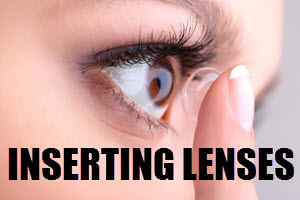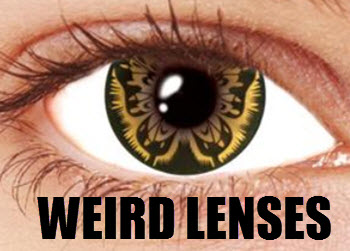Understanding FDA Approval for Decorative Lenses
In today’s fashion-conscious world, decorative contact lenses are gaining significant popularity among individuals looking to enhance their aesthetic appeal. These lenses, sometimes referred to as cosmetic or colored lenses, do not correct vision but change the eye’s appearance. When considering purchasing these types of lenses, understanding the significance of FDA approval is crucial for safeguarding your eye health and safety. The FDA, which regulates various types of medical devices, considers all contact lenses—including decorative lenses—as medical devices. Therefore, they must meet certain safety and effectiveness standards before being marketed. Here’s an in-depth exploration of how you can ensure the decorative lenses you purchase are FDA-approved and safe for use.
Why FDA Approval Matters
Decorative lenses may seem harmless, serving primarily aesthetic purposes. However, the absence of FDA approval poses substantial risks to your ocular health. Wearing lenses that have not been approved by the FDA could lead to serious eye infections, cause red and itchy eyes, or even induce irreversible vision loss. The FDA classifies all types of contact lenses as class II or class III medical devices, requiring rigorous evaluation. An FDA approval signifies that the specific product has been thoroughly evaluated to ensure it meets safety standards and provides effectiveness according to its claims.
The potential dangers of wearing unapproved decorative lenses include corneal ulcers or abrasions, which could lead to permanent vision damage. Furthermore, these lenses may contain materials that do not allow sufficient oxygen to reach the eye, potentially resulting in reduced vision or even blindness. Hence, ensuring the product you choose is FDA-approved is critical in preventing hazardous consequences.
Steps to Verify FDA Approval
Finding reliable and safe decorative lenses necessitates verifying their FDA approval. Here are some practical steps to ascertain their approval status:
Consult Healthcare Providers
A key step in ensuring the safety of decorative lenses is consulting with trained eye care professionals. Optometrists or ophthalmologists are best placed to offer advice on safe, FDA-approved decorative lenses. They can perform fitting assessments to help procure lenses that not only augment your appearance but also do not compromise your eye health. By consulting healthcare providers, you gain access to their expertise and guidance on where to purchase approvals adhering decorative lenses.
Check with the FDA’s Website
The FDA offers a wealth of resources online, assisting users in verifying the approval status of medical devices, including contact lenses. Although there may not be a specific list dedicated to decorative lenses, the FDA’s database and contacts division offer insights into approved products. A diligent search on the FDA website can help confirm whether the brand or specific type of decorative lenses you are interested in is FDA-approved, aiding informed decisions.
Retailer Verification
Purchasing decorative lenses from reputable retailers is another means to ensure they are FDA-approved. Retailers specializing in optical products, such as licensed optical centers or established online contact lens suppliers, are more likely to sell approved lenses accompanied by valid prescription requirements. Be cautious with vendors that sell lenses without a prescription, as these are often found in costume or beauty stores and are less likely to offer FDA-approved options. Retailers with a history of supplying optical products are generally better equipped to provide guidance and approved options, ensuring safer lens choices.
Features of FDA-Approved Lenses
FDA-approved decorative lenses come with distinguishable features that signal their compliance with safety standards. These lenses typically include comprehensive packaging detailing the manufacturer’s information, prescription details, and safety instructions. This documentation indicates that the lenses have undergone necessary evaluations for their fit and composition. The proper fitting of lenses, guided by professional eye care providers, is crucial to avoid discomfort or injury.
Moreover, FDA-approved lenses are composed of materials that are breathable, allowing the eyes to receive adequate oxygen and minimizing the risk of damage. As packaging and labeling are legally required for approved lenses, scrutinizing these features can be an efficient way to verify their legitimacy and safety.
Risks of Non-Approved Lenses
Utilizing decorative lenses without FDA approval poses a spectrum of potential risks and complications. The absence of regulatory oversight means that the materials and manufacturing processes used in these lenses are not monitored, making them more likely to harbor harmful substances or allergens. Specific complications encountered with non-approved lenses include:
- Eye Infections: Non-approved lenses can foster bacterial growth, leading to severe infections that require medical treatment.
- Altered Vision: Wearing improperly fitted lenses can distort vision, leading to discomfort and a reduced ability to see clearly.
- Corneal Damage: Non-approved lenses can induce corneal scratches or ulcers, eventually compromising vision quality.
These issues underscore the importance of choosing approved products that protect ocular health while offering cosmetic enhancement.
Conclusion
The growing allure of decorative contact lenses necessitates diligent verification to safeguard your eye health. Ensuring lenses are FDA-approved is an essential step in preventing potential hazards such as infections or vision loss. Consulting eye care professionals, exploring verification resources on the FDA’s website, and selecting products from credible retailers are vital measures in this process. These efforts provide assurance that the lenses you choose adhere to high safety and effectiveness standards, preserving the health and well-being of your eyes.
Being vigilant in your choice of decorative lenses helps maintain eye health while achieving your desired look. For further information and to keep abreast of the latest guidelines related to decorative lenses, consider visiting the FDA’s official website, which is a reliable source of updated regulatory insights and approvals.



 Cosmetic contact lenses
Cosmetic contact lenses